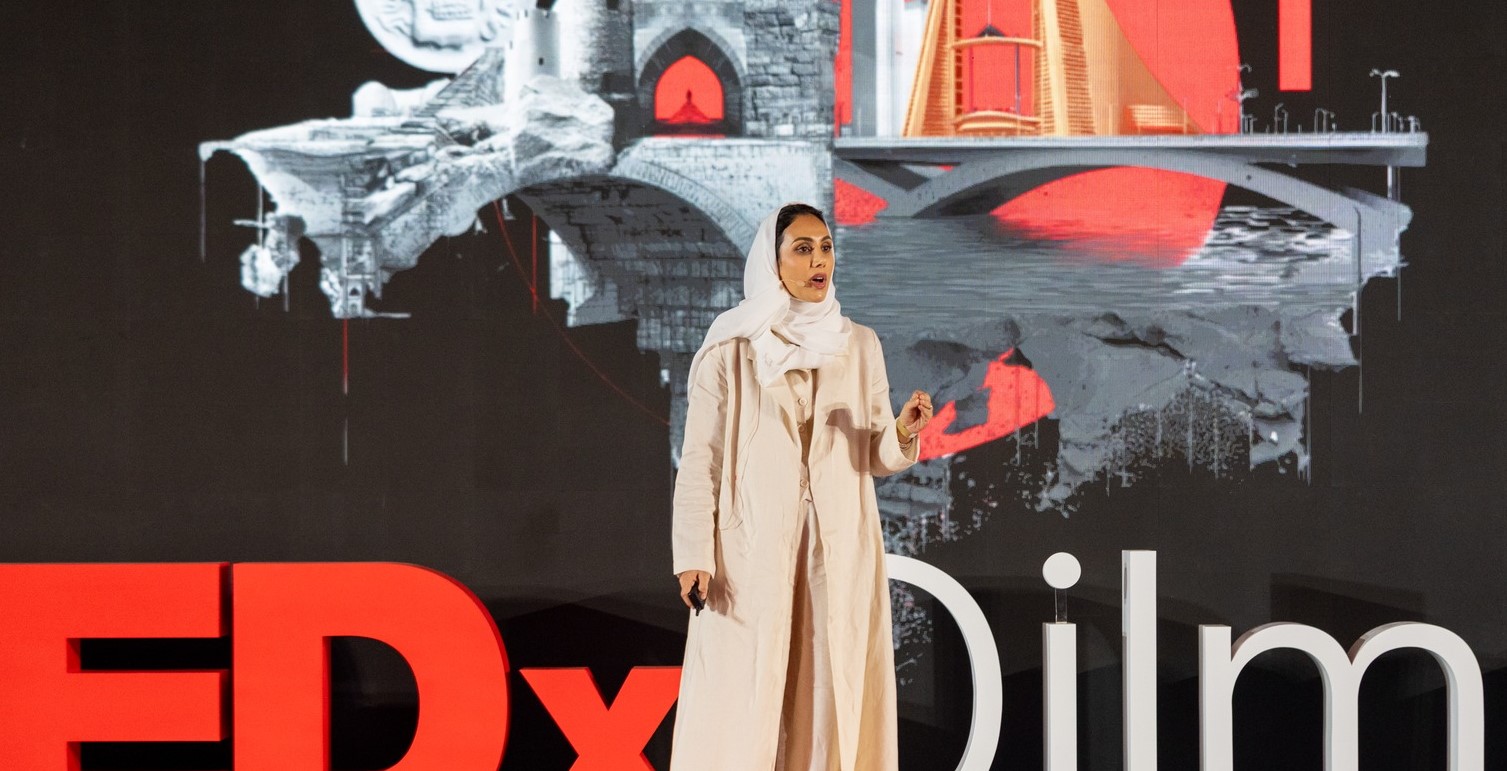
Dr Reem Al Ansari Addresses Medical Errors at the Inaugural Global ‘TEDx Dilmun’
Arabian Gulf University
24 Nov, 2025
Dr Reem Al Ansari, Director of the Medical Skills and Simulation Centre and Assistant Professor of Medical Education at the College of Medicine and Medical Sciences at the Arabian Gulf University (AGU), spoke at the global ‘TEDx Dilmun’ event.
Held for the first time in the Kingdom of Bahrain, the event featured wide participation from influential figures from Bahrain, the region, and the world, headlined by His Highness Shaikh Nasser bin Hamad Al Khalifa, Representative of His Majesty the King for Humanitarian Work and Youth Affairs.
The event addressed four key themes: Exploration, Discovery, Growth, and Interaction. Dr Al Ansari explained that medical errors are not inevitable, but rather crucial lessons to be learned before patients pay the price, emphasising that "medical simulation" today serves as the first line of defense in preventing such errors and saving lives.
She clarified that the prevailing belief that medical errors are an unfortunate yet "normal" part of the profession—particularly among young practitioners in high-pressure environments—is a misconception. She stated: "A single moment on an intensive care bed can change a patient’s life, or end it."
Dr Al Ansari recounted a critical incident in the Intensive Care Unit where a simple error in the sequence of administering medication nearly resulted in a tragedy, had the team not caught the mistake at the very last moment. She noted that such errors are often merely filed in official reports without thorough discussion or deep learning, a realisation that drove her to rethink the entire medical training system.
Highlighting the gravity of the issue, she pointed out that the latest World Health Organisation (WHO) estimates reveal that three million people die annually due to unsafe healthcare, a figure she described as "equivalent to a fully loaded passenger plane crashing every hour... yet we still consider it normal".

Dr Al Ansari emphasised that the solution begins with the adoption of simulation training—a safe educational environment where critical clinical cases are recreated using specialised manikins and equipment, without exposing patients to any risk.
She pointed out that the true power of simulation lies not merely in the scenario itself or the advanced equipment, but in the subsequent "debriefing" phase, where team behaviour is analysed and decisions are reviewed in a blame-free manner.
She added that the "Advocacy-Inquiry" methodology—which combines stating observations with asking questions—is a critical tool for building this understanding.
"It fosters open discussion free from judgment and transforms errors into genuine learning opportunities," she explained, adding that the success of this approach requires an environment of psychological safety within the team, where every member feels empowered to speak up, question, and even challenge the decisions of superiors without fear of repercussions.
Dr Al Ansari outlined that the levels of psychological safety—ranging from a sense of belonging to the ability to ask questions, contribute, and ultimately challenge decisions—are what differentiate a team that prevents an error before it occurs from one that allows it to reach the patient. She stressed that a "culture of inquiry rather than accusation" is the essence of safe healthcare, transforming simulation from rigid training into an institutional culture that saves lives.
Concluding her talk, Dr Al Ansari asserted that shifting from judgment to curiosity is the core of learning in simulation, noting that without this mindset shift, simulation training loses its true value. She underscored that this approach not only improves care quality and patient safety but is also the heart of safe teams—and, indeed, the heart of humanity itself.
